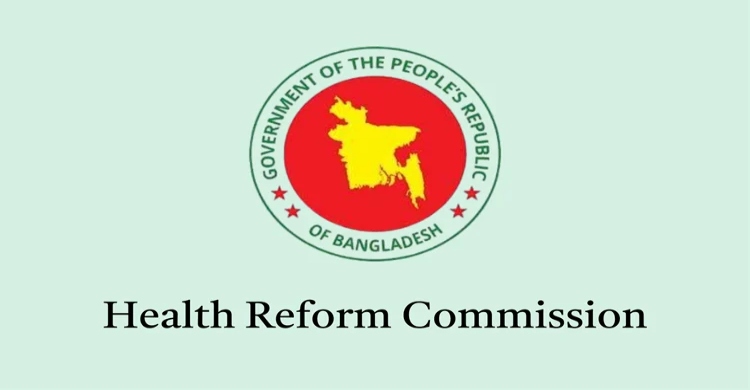Reform Commission for modern salary structure for healthcare providers


The Health Sector Reform Commission (HSRC) has put forth a recommendation to establish a time befitting salary structure for healthcare providers.
The HSRC made this recommendation in its report, emphasizing the universal right to health, submitted to Chief Adviser Professor Muhammad Yunus on Monday last.
It recommended short-term salary board for healthcare providers, emphasizing the need for a well-structured and modern salary framework for intern doctors, postgraduate students (allowance), private practitioners, nurses, and all categories of health personnel under the Bangladesh Health Commission.
The recommendation also said, if this structure is formulated, the financial stability and job security of the workers will be ensured. As part of the mid-term plan, it will help long-term motivation and improve working environment for health care workers, it added.
The report of the HSRC said at the beginning: "This reform report is dedicated to the memory of the martyrs of the great Liberation War of 1971 and July-August 2024".
May this health sector reform proposal contribute to the realization of a society free from discrimination, fulfilling the aspirations of the martyrs.
The preface of the proposal mentioned that despite Bangladesh's significant progress in the primary healthcare sector in the decades following the independence, Bangladesh is far behind in achieving the Sustainable Development Goals (SDGs) and universal health coverage.
With the approval of the Chief Adviser to the Interim Government, the HSRC was framed on November 18 to make healthcare people-oriented, accessible and universal.
National Professor and President of Diabetic Association Dr AK Azad Khan was made the chief of the HSRC.
In developing its recommendations, the commission has considered several key factors, including the proposed timeline for implementation, measures to be taken during the interim government's tenure, actions required under the next elected government, as well as national expectations and commitments.
The HSRC held a total of 51 regular meetings of the commission to formulate the report and recommendations, and organized a total of 32 consultation meetings.
Consultation meetings were held in Chattogram, Rangamati, Khulna, Sylhet, Rajshahi, Rangpur, Barisal, Munshiganj and Dhaka. Advice and cooperation from experienced individuals, relevant professionals, and expert organizations in various fields were taken.
